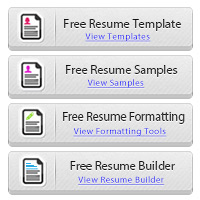Frequent Resume Writing Questions
Writing your own resume is often discouraging, particularly if you haven’t updated it exceedingly. Not solely is there the requirement to replicate back on what you’ve finished your career and what you’ve gained from it to support what you are doing at the subsequent job, then again there are all the questions on however the modern resume ought to be formatted.
There are usually many queries asked regarding resume writing by job seekers:
1. How Long Should My Resume Be? 1 Pager or 2 Pages.
It’s a common assumption that resumes should only be one page long. This, however, is outdated advice from the era when paper resumes were still a thing. If you are a recent graduate or if you don’t have much work experience or have only had one or two positions then a one-page resume will suffice. If you have more than 2 jobs and more than 4 years of experience then a 2-page resume is perfectly fine. Never in the history of ever was a recruiter mad because they had to use the scroll button on their mouse, yet so many resume experts will beat you to death with a one-page resume requirement.
The more you have on your resume the better your odds of coming up during a resume search on LinkedIn or monster or whatever you have your resume uploaded. Recruiters main responsibilities are to find and check for skills and achievements. This implies that in a search engine driven world resumes that are longer will outperform resumes that keep it to a bare minimum.
In general, you stop adding job details after 10 years of experience unless you are going for a senior or executive role.
2. Should I put my address on my Resume?
Never put your whole address on your resume, it can be used against you. Employers will google your address and try to find the type of commute your have. If you’re anything over 1 hour + you could be rejected. Zip codes can also be used to discriminate, unfortunately, too many parts of a city, for example, are deemed as bad neighborhoods which can penalize you.
You can merely indicate your town.
3. What resume format should I use?
There are many ways to format content on the resume. Going chronologically together with your most up-to-date job 1st is often most typical resume format. Note that useful resumes (where you only list job titles and dates with not detail) don’t work. They raise a red flag with employers as a result of their typically want to hide one thing.
Instead you’ll use a hybrid resume that stresses skills followed by reverse career chronology.
4. What ought to be done to the resume so as to right away impress employers.
The top of your resume is prime reality referred to as a resume summary. The objective here is to indicate valuable info as to why you are the perfect candidate for this role. This is often the sole section recruiters read to tell them your skills and significantly, tell them you’ll deliver the results they’re seeking. Here is how to write a resume summary.
5. How to write a resume if I don’t have much work experience?
If you lack expertise or skills, you have got to make up for it in alternative ways to show that on your resume. adding info about college work and specific ones that may highlight your information and skills applicable to the task. Volunteer work can often be a good substitute. Try to find volunteer work that is closely aligned with the type of role that I want to be in. If it’s admin work then volunteer at the library or local hospital. Additionally, note any awards or achievements with quotes and testimonials from managers and customers.
6. What file format should I save my resume in?
The safest bet is to save in .doc Word format. This ensures that your resume file will open. PDF’s can cause problems if somebody has to parse the resume in a content management system. Therefore follow directions given. If no directions are given, resort to .doc Word format.
7. What do employers look for in a good resume
Recruiters look for similar titles in previous positions, specific skills, and possibly certification, license, and education. Remember, the resume is your personal business card. It is important to tailor your resume to the immediate job. Recruiters need to justify bringing you in for an interview, if they don’t see anything on your resume that matches the job requirements you will be skipped despite the degree you many have. There are two things that ensure that a hiring mistake will not be made which is past performance. You need to showcase that you are worth the time and money the employer is ready to invest.

